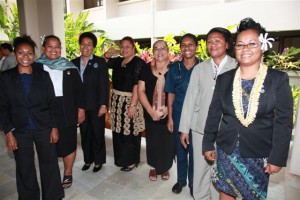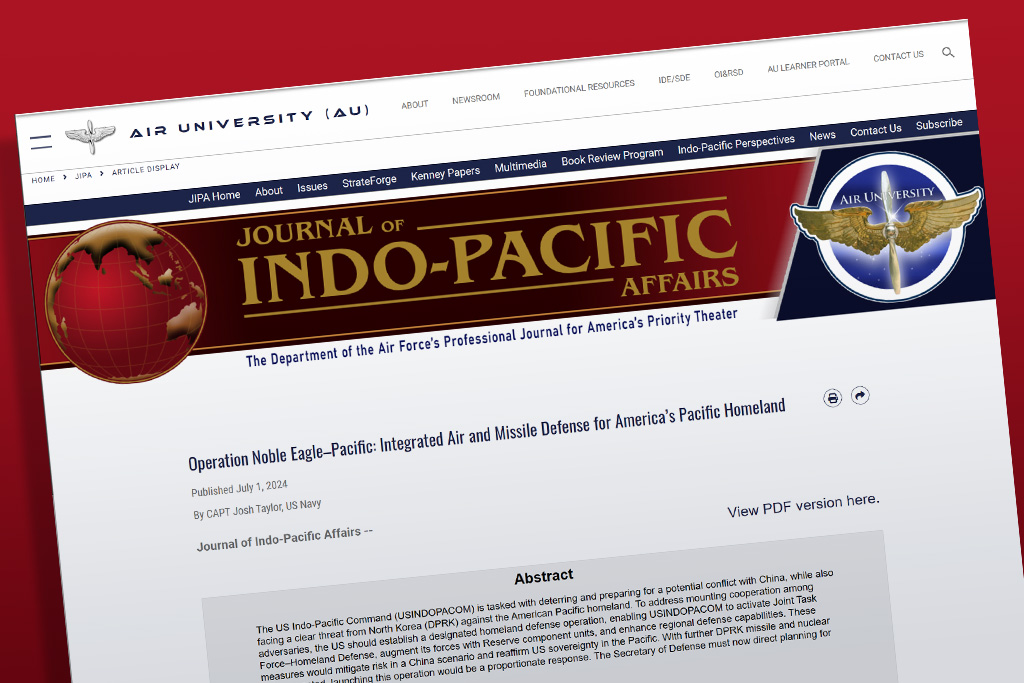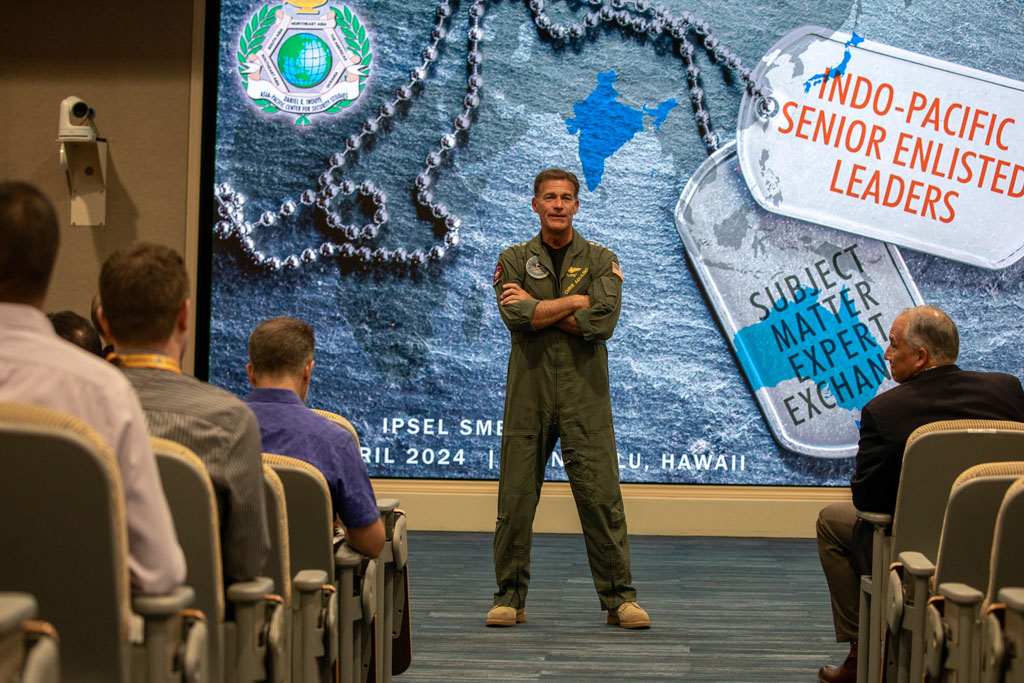
Eight women from Oceania participated in a special Women, Peace and Security Initiative held as part of the Advanced Security Cooperation course. Pictured are (l-r): Ms. Cynthia J. H. Duoribi (Papau New Guinea), Ms. Marjorie Deireragea ( Nauru), Ms. Taranaivini Leba Savoi ( Fiji), Ms. Teleisia Malani (Tonga), Ms. Ruby A. Kavaliku (Tonga), Chief Inspector Joanne H. Clarkson (Papua New Guinea), Ms. Carmel M. Tamiloenia (Papua New Guinea) and Ms. Emilia A. Katosang (Palau).
Among the 89 Fellows attending the Asia-Pacific Center for Security Studies’ latest course were eight women from Oceania, who are part of a new initiative focused on Women, Peace and Security (WPS).
The WPS initiative is a joint project between the U.S. Department of State and the U.S. Department of Defense (Policy) aimed at developing a cohort of leaders committed to advancing women’s inclusion in peace negotiations, peace building activities, and conflict prevention; protecting women from sexual and gender-based violence; and ensuring equal access to relief and recovery assistance, in areas of conflict and insecurity.
According Dr. Lori Forman, “Too often, gender issues are discussed separately in stand-alone conferences attended only by gender specialists. By participating in the Advanced Security Cooperation Course, the WPS Fellows were exposed to a comprehensive set of security issues while simultaneously introducing their concepts and perspectives to a broad range of traditional and non-traditional security practitioners. The combination empowers all of the Fellows in the course to appreciate the role of WPS issues in the broader security equation and the value of the gender-based perspective.”
This inaugural group is from the Pacific Islands. As part of the program, they are working together on a special WPS Fellows Project and will remain connected through a Community of Interest on WPS issues. If the overall effort is successful, the project may expand to other participant countries and may become informally embedded in the Fellows selection process in the future.
Chief Inspector Joanne Clarkson, Director of Corporate Planning for the Papua New Guinea Police got involved in the Women, Peace and Security Fellowship through an advisor who works at the PNG-Australia Law & Justice Partnership.
According to Clarkson, “the Women, Peace and Security Fellowship has been beneficially to me personally and professionally. One benefit was a chance to connect to another Fellow from Nauru who runs a safe house. From her I was able to learn what was happening in Nauru. How their police system works in terms of training, women police officers, and attitudes towards domestic violence.
“One of my regional roles is as Deputy Chair of the Pacific Islands Chief of Police Women’s Advisory Network. It was very interesting to hear how different organizations are using women police officers and how their inclusion in a unit impacts their effectiveness in domestic violence cases as well as what type of training we can do from a regional perspective,” said Clarkson.
By attending the Advanced Security Cooperation course she said her appreciation for her region has grown tremendously. “It gave me a chance to focus on different parts of the region and the issues they face. I now have a better understanding of issues will eventually impact my sub region,” said Clarkson. “The knowledge and the connections I’ve made in this course will help me as I advance in my career.”
Ms. Emilia A. Katsong, a senior Foreign Service officer from Palau, said the course “really opened my eyes and raised my awareness of the security issues in the region. I walk away from this program with a wealth of knowledge that I will be able to use in my day to day work and in the future.”
Despite the historic passage of UN Security Council Resolution 1325 more than ten years ago-a resolution that reaffirms the important role of women in the prevention and resolution of conflicts-women are still largely shut out of peace and security processes. Accordingly, the United States released its first-ever National Action Plan on Women, Peace, and Security in December 2011, laying out the concrete steps by which the U.S. Government can achieve a goal as simple as it is profound: to empower half the world’s population as equal partners in preventing conflict and building peace in countries threatened and affected by war, violence, and insecurity.
Achieving this goal is critical to the U.S.’ national and global security and providing women (and men) educational opportunities to learn more about how to include and consider women in all phases of conflict helps to advance these objectives. For more information on the U.S. National Action Plan on Women, Peace, and Security go to http://www.whitehouse.gov/sites/default/files/email-files/US_National_Action_Plan_on_Women_Peace_and_Security.pdf
For more information on other countries’ National Action Plan’s on Women, Peace, and Security go to:
http://www.peacewomen.org/pages/about-1325/national-action-plans-naps
-END-








